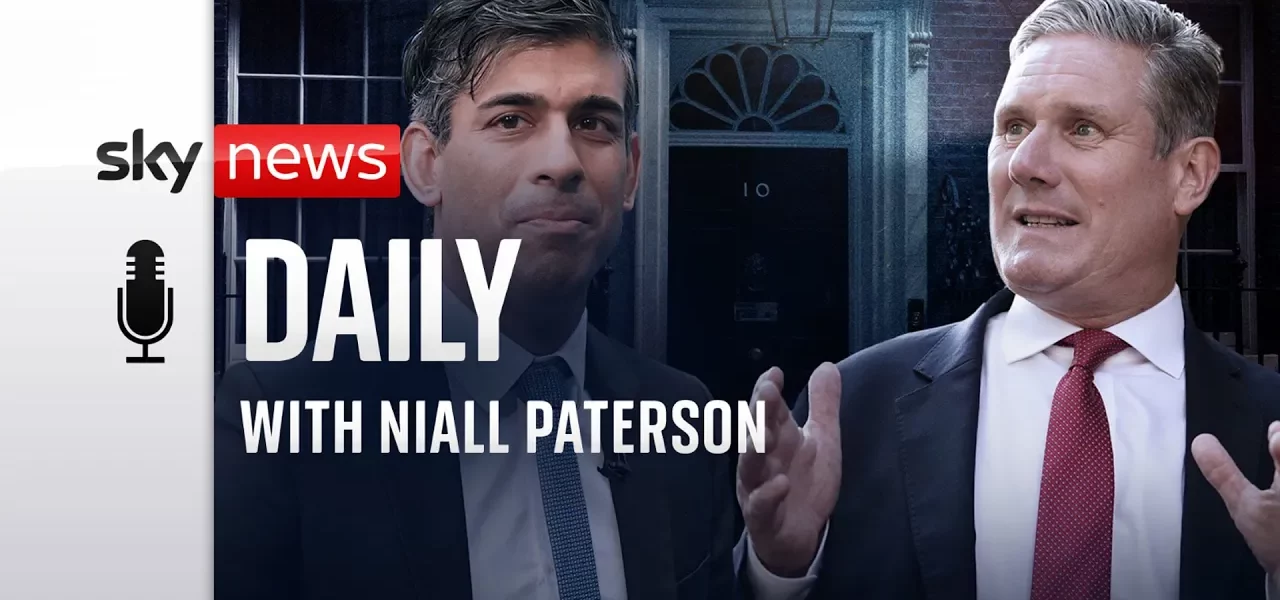Rishi Sunak Calls Election: A Closer Look at the Campaigning Strategies

This article delves into the recent announcement of an election by Prime Minister Rishi Sunak for July 4th, exploring the unfolding political landscape, campaign strategies of major parties, and the increasing importance of digital platforms in modern elections.
Introduction
On July 4th, the United Kingdom will witness a pivotal election, as Prime Minister Rishi Sunak has officially called for a vote that will determine the nation’s political direction. The lead-up to this election marks the beginning of an intense six-week campaign, where political parties will battle for public support. This article will explore the strategies employed by both the Conservative Party and the Labour Party, the dynamics of their campaigns, and how digital platforms are playing a crucial role in reaching voters.
The Campaign Launch: Rishi Sunak’s Strategy
Rishi Sunak’s campaign kicked off with an ambitious plan to visit various regions across the UK, showcasing his commitment to engaging with the electorate. His strategy involves a series of appearances designed to present him as a relatable leader, despite the inherent contradictions in his approach. Let’s break down his campaign strategy:
Traveling Across the UK
Sunak aims to cover all nations within the United Kingdom in the first 48 hours of the campaign. His itinerary includes:
- Darbyshire, England
- Cardiff, South Wales
- Highlands, Scotland
- Northern Ireland
This extensive travel is intended to reinforce his presence and demonstrate his dedication to all constituents.
Messaging and Policy Focus
While Sunak’s narrative emphasizes his underdog status and the need for stability, the campaign has faced criticism for lacking concrete policy proposals. Key points include:
- Highlighting the dangers of a Labour government.
- Continuing to streamline the Civil Service.
- Focusing on defense spending and immigration control.
Despite these points, critics argue that Sunak needs to offer more substantial policy details to sway undecided voters.
The Labour Party’s Campaign Response
As Sunak embarks on his campaign tour, the Labour Party, led by Keir Starmer, is also gearing up for the electoral battle. Starmer’s campaign strategy represents a marked shift from previous Labour approaches, focusing on key issues that resonate with the electorate.
Key Campaign Themes
Starmer’s campaign has been characterized by memorable slogans and a clear focus on change. Important themes include:
- Ending the chaos of the current administration.
- Delivering economic stability and addressing the cost of living crisis.
- Revitalizing Labour’s presence in traditional strongholds.
Engagement with Voters
Starmer’s initial campaign stop was in Gillingham, Kent, a strategic choice aimed at reclaiming seats lost during previous elections. His approach contrasts with Sunak’s, as he seeks to connect with voters on issues that matter to them, such as:
- Healthcare improvements.
- Education reform and teacher recruitment.
- Addressing housing shortages.
Labour’s strategy appears to be more focused on grassroots engagement, aiming to resonate with the electorate’s everyday concerns.
The Digital Campaign Landscape
As the election approaches, the importance of digital campaigning cannot be overstated. The parties are investing heavily in online strategies to capture the attention of voters in an increasingly digital world.
Digital Advertising Trends
The financial landscape for digital campaigning has shifted significantly, with spending limits nearly doubling compared to previous elections. Key aspects include:
- Increased online advertising budgets.
- Focus on social media platforms like TikTok and Instagram.
- Utilizing data analytics for targeted campaigns.
Challenges and Opportunities
While digital platforms offer new opportunities for engagement, they also present challenges. Notable points include:
- Adapting content for different platforms.
- Ensuring compliance with advertising regulations.
- Mitigating the spread of misinformation.
Both parties are working to navigate this complex landscape, aiming to maximize their online presence and influence voter sentiment.
Conclusion
The upcoming election on July 4th presents a critical moment for both Rishi Sunak and Keir Starmer. As they embark on their respective campaigns, the strategies they employ will significantly impact their chances of success. The combination of traditional campaigning methods and innovative digital strategies will shape the electoral narrative. Voters must remain vigilant, informed, and engaged as the campaign unfolds. For continuous updates and insights into the election campaign, stay tuned to our coverage.
“`




